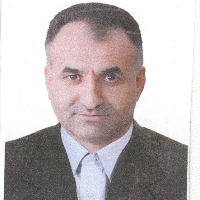The Effectiveness of AIDS Prevention Education Program on Reducing Risk Factors with Community Based Approach in soldiers and military staff
AIDS is one of the most dangerous infectious diseases which is spreading among adolescents and young people. Soldiers and military staff are among the target groups in national AIDS prevention program. The purpose of this study was to determine the effectiveness of AIDS prevention education program to reduce the risk factors of this disease with a community-based approach.
This was a quasi-experimental study designed with pre-test and post-test that were conducted in two the military barracks in Khorasan Razavi Province (east of Iran) in 2018. Study samples were selected from two military garrisons as available sampling and based on the list and number of soldiers and guards in each garrison. For each intervention and control group, at least 150 samples were calculated. The International AIDS and Life Skills Questionnaires were used. Based on a community-based approach (Educational needs and the use of key forces of the military barrack), educational contents were provided. In total, seven educational sessions were held in the intervention group, including six educational sessions for soldiers and military staffs (one hour in two weeks) and one educational session for military barrack training authorities. Post-test was performed three months after the final educational session.
The two groups were matched for age (P>0.05). The variables of transmission myths, attitudes and awareness about AIDS (P=0.001) and the variables of decision making, interpersonal relationships and creative and critical thinking relating life skills (P=0.001) were significantly increased after intervention. Personal risk perception variables relating AIDS (P=0.630) and problem solving variable (P=0.594) did not change significantly after intervention.
The results of this study revealed that using a life-skills educational program with a community-based approach can reduce the risk factors for AIDS in soldiers and military staffs. Thus it is recommended to include life skills education in training program of military barracks as a necessary approach for reducing the risk factors for AIDS in soldiers and military staff.
-
Comparing the effectiveness of schema therapy and compassion therapy on self-criticism and stigma in patients with human immunodeficiency virus
Zahra Elmi, Sheyda Sodagar *, Marjan Hossein-Zadeh Taqvaei, Afshin Salahian, Seyyed Javad Hoseini Shokouh
Medical Journal of Mashhad University of Medical Sciences, -
Examining the impact of an educational intervention based on the Precaution Adoption Process Model (PAPM) on conducting HIV screening tests in nursing students
Tahereh Kamalikhah, Azam Sadat Razavi, , Mohammadhassan Rakhshani, Hamid Jovini, Masoumeh Hashemian, Fariba Shahraki-Sunavi*, Ali Mehri
Journal of Health Education and Health Promotion, -
The Relationship Between Main Blood Groups in Clinical and Paraclinical Findings and Final Outcome of Hospitalized Patients with COVID-19
Mohammad Aminianfar, Behnam Azimi, Saeed Soleiman-Meigooni *, Mohammad Soleimani, Seyyed Javad Hosseini-Shokouh, Siros Faraji, Khodayar Ghorban, Mohammad Darvishi, Maryam Asli
Nurse and Physician Within War, -
Application of PEN-3 model in promoting early detection of breast cancer in women living on the suburbs
Ali Mehri, Somaye Zarbi, Zakieh Sadat Hosseini, Hamid Joveini, , Masoumeh Hashemian*
Payesh,


